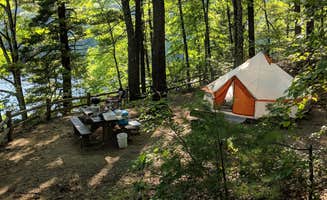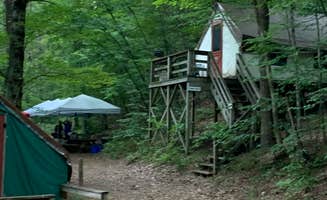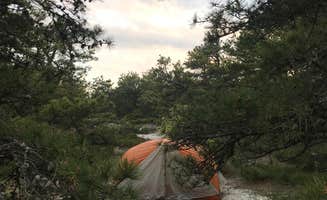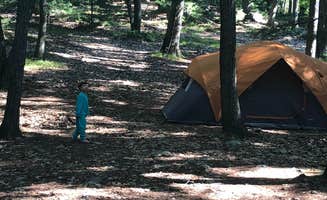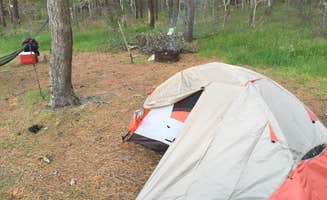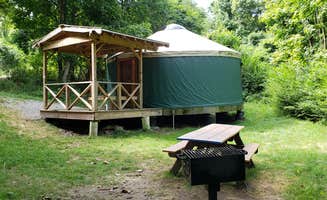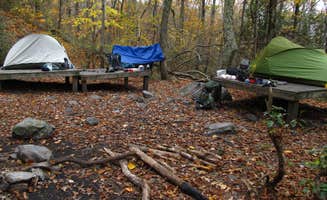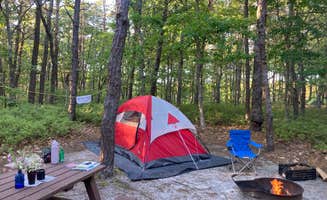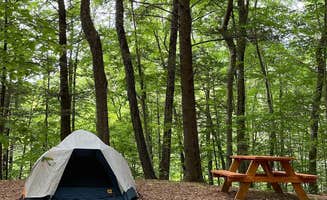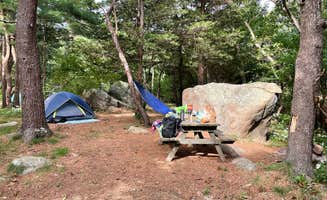Best Tent Camping in Massachusetts
Massachusetts offers a diverse range of tent camping experiences, from walk-in sites in state forests to primitive backcountry options along the coast. Alander Trail Campground in Mount Washington State Forest provides free primitive tent sites accessible via a 1.5-2 mile hike from the trailhead. Sandy Neck Beach Park features primitive tent campsites that require either hiking through sand or utilizing boat-in access, offering a unique coastal camping experience. Tully Lake Recreation Area provides drive-in and walk-in tent sites with amenities like picnic tables, drinking water, and fire rings.
Most primitive tent camping areas in Massachusetts feature minimal amenities but essential services. At Alander Trail Campground, campers find semi-flat tent areas, fire pits with grill racks, picnic tables, and shared bear boxes for food storage. No drinking water is available at primitive sites, requiring campers to carry in their supplies. According to one visitor, "Each spot is easy to find off the trail. They also have bear boxes at each site!" Walk-in tent sites often require packing gear some distance from parking areas. The terrain at many Massachusetts tent campgrounds consists of forest floor with varied ground conditions depending on recent weather.
Tent camping in these areas offers solitude and natural experiences not found at developed campgrounds. Sites at Mount Washington State Forest provide true wilderness immersion with considerable privacy between campsites. A visitor commented that "it usually isn't too busy since most people don't like having to carry all their stuff in that far." Sandy Neck's tent campsites offer remarkable beach access where fires are permitted on the beach, providing sunset views over the water. Seasonal considerations affect the tent camping experience, with summer months bringing higher humidity and potential for insects while fall offers cooler temperatures and fewer crowds. Many tent-only areas remain open year-round but access becomes more challenging during winter months, particularly at higher elevations.


